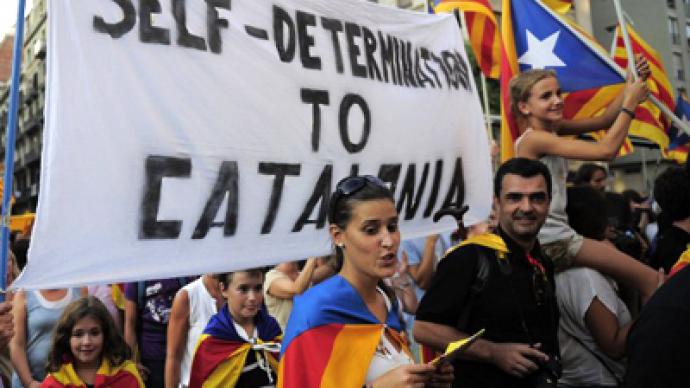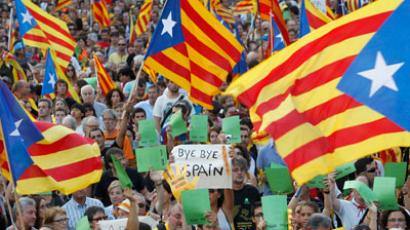'EU's big government cartel is blocking economic growth'

European states are trying to stay afloat by cutting their social spending. But the solution to the problem lies in separation and competition between smaller governments, believes Toine Manders from the Libertarian Party of the Netherlands.
RT: Are bailouts the solution to the eurozone debt crisis, and if not, what is?Toine Manders: Bailouts are absolutely not the solution – they add to the problem. Bailouts create a moral hazard. When bailouts are given, the behavior that led to the problem in the first place is encouraged. Governments that are spending too much money will continue to spend too much money, if they keep getting bailout money. The only way to stop that cycle, that downward spiral, is to stop the bailouts. It actually worked very well for countries such as New Zealand and many developing countries as well. When they ran into financial trouble and could not pay their bills anymore, when they got bailouts the problem got worse. When they did not get the bailout, or when the bailout stopped – that is when they started making good policies. That is when they started privatizing, and then they started cutting subsidies and shrinking governments. And that has actually created a situation when New Zealand and many Third World countries improved their government policy – by adapting free market policies. And that is how they created wealth.RT: What do you think the national governments are doing wrong when trying to tackle their debt problems? TM: What they are doing wrong is that they keep pursuing the same bad policies, which is a big government policy, which is the idea that if the government spends a lot of money, government makes a lot of rules, government intervenes in the market [assuming] that this is somehow good for wealth, that this is somehow good for economic growth. And that is the wrong assumption. When the government grows, the economy can’t grow. Small governments are good for economic growth. When government shrinks, when government spends less money, that is when the economy grows. So when government is in debt, it is in debt because it spent too much money. And the problem cannot be solved by spending more money and getting into even deeper debt. If an individual has a debt crisis, and he tries to solve his debt crisis by spending even more money, getting into even more debt, that usually does not help him at all. You have to face the problem and you have to cut spending and live within your means. And that's what governments need to do as well. When governments become smaller and stop the policy of overspending and overtaxing and over-regulating, that is when the economy will start growing again. RT: There's strong separatism sentiment in Belgium, Britain and Spain. Is independence going to make the regions striving for independence better off?TM: Absolutely. I think usually small governments and small countries do very well. Countries that are very small – like Luxembourg, like Monaco, like Lichtenstein, like Singapore, Hong Kong – these are very small countries and they do extremely well. So, one solution to our problem of having too much government spending is separation. When countries become smaller because of these areas getting independence, there is more competition among governments. That is a good thing. Everybody knows that competing companies are a good thing. When companies compete, prices go down, service goes up and quality goes up. The same thing is true for governments. When governments compete they have to bring their tax rates down. That is why tax rates have gone down in the last 30 years, because Reagan and Thatcher started cutting taxes and the rest of the world followed in order to compete. The European Union right now is like a cartel of high-tax countries, and the European Union is trying to harmonize tax policies, harmonize tax rates and harmonize regulations and eliminate competition. That is a bad thing. If small countries come into existence because areas that are not independent now become independent countries in the future, there’s more competition. There will be lower taxes, there will be less spending; there would be fewer regulations, there will be more free market policies. Because countries need to compete for capital and for talent – and that is what drives economic growth.














